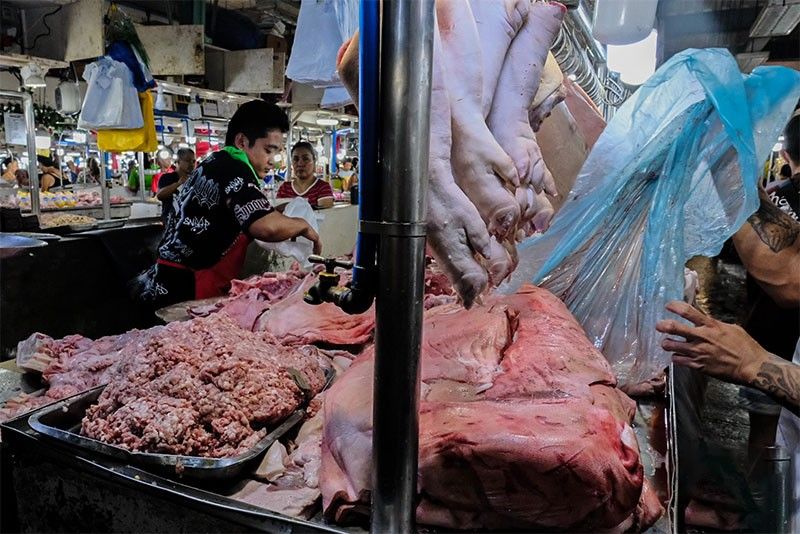City’s meat establishments told: Improve or face closure

CEBU, Philippines — The Department of Veterinary Medicine and Fisheries (DVMF) has reminded operators of locally-registered meat establishments (LRMEs) in the Cebu City to improve their services in order to prevent closure orders.
DVMF’s officer-in-charge Dr. Jessica Maribojoc explained that upgrading services is necessary, however they've seen the opposite from a lot of LRMEs.
“Abi nato’g mag-improve sila. Unfortunately, nag-deteriorate gyud sila,” Maribojoc said.
An LRME is a meat processing establishment that the city regulates.
The DVMF, City Health Office, and the Cebu City Environment and Natural Resources Office (CCENRO) have been regularly evaluating LRMEs to ensure that they are up to standards.
Maribojoc noted that some of them refuse to improve their services to the point that her office has recommended some for closure.
Out of the 19 LRMEs in the city that handle pork and chicken meat, the National Meat Inspection Service (NMIS) only granted two with a double A accreditation, according to the City’s News and Information team.
An abattoir or slaughterhouse with a double A accreditation are allowed to sell their meat products to other areas in the country.
Majority of LRMEs in the city have yet to secure a single A accreditation.
A facility with a single A accreditation can distribute or sell its meat products within the city or municipality where it is located.
“Kinahanglan nang i-upgrade ang LRMEs to single A nga ihawan. Dako nga possible reason nga i-upgrade kay usa sa mga mandato man gud nato is ang food safety o’ atong protektahan ang konsumedor sa mga meat nga ipagawas o’ ibaligya sa merkado,” Maribojoc said through the City’s RMN Sugbuanon channel.
Maribojoc also reiterated her desire for the city to have one’s own accredited abattoir or slaughterhouse so it can process its own meat products.
The city used to have its own abattoir at the North Reclamation Area but closed down in September 2016 after it failed to pass NMIS standards.
Aside from that, the DVMF has also reminded meat sellers and handlers to regularly secure permits from the City for their employees and for the products they are selling if they wish to continue operating without any hitches.
Annalyn Calungsod of DVMF’s regulatory section also said that they are regularly inspecting wet markets and supermarkets to determine if the meat they sell have proper documentation and are fit for human consumption.
DVMF conducts inspections in three processes: ante mortem, post mortem, and post abattoir.
During the ante mortem inspection, meat inspectors visit abattoirs and slaughterhouses to determine if the livestock they are set to process are fit for human consumption.
The inspectors also require operators to provide health certificates, livestock transport certificates, and other certifications to prove that the delivered livestock are healthy and humanely transported.
For postmortem inspection, DVMF’s meat inspectors check if the killed animal had illnesses that could be detected while still alive.
If the slaughtered animal is fit for human consumption, meat inspectors would provide the abattoir or slaughterhouse operator with a meat inspection certification.
During the post abattoir inspections, DVMF personnel would visit wet markets and supermarkets to check if the meat it sells are not spoiled or have proper documentation.
Personnel who are in charge of handling meat products are also required to secure certifications from the city. —/ATO (FREEMAN)
- Latest



















